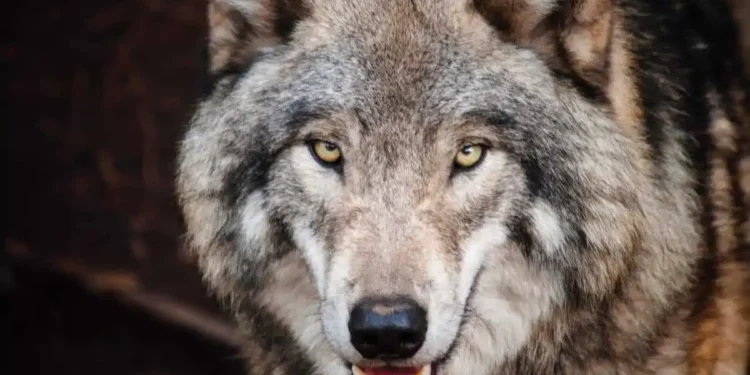Have you ever wondered about the fascinating creatures known as wolves? These majestic animals belong to the canine family, similar to our beloved dogs, and can be found roaming through dense forests, towering mountains, and even the vast, icy tundra. With their remarkable hunting abilities, wolves primarily prey upon deer and elk, showcasing their natural prowess in the wild.
One characteristic that often captures the curiosity of many is the number of teeth a wolf possesses. As they engage in hunting, their teeth play a crucial role in securing their prey. In this enlightening article, we will delve into wolves’ world and uncover their dental structure’s secrets.
The teeth of a wolf can be categorized into four distinct types: incisors, canines, premolars, and molars. These specialized dental tools aid them in seizing and subduing their prey effectively. Interestingly, the dental journey of a wolf starts at birth. While wolf puppies begin with a modest set of 28 teeth, these will gradually be replaced by their adult teeth over the span of four to six months.
We discover striking similarities when comparing the teeth of wolves to those of their domestic counterparts, dogs. However, wolves possess teeth that are larger and stronger, reflecting their need for power and endurance in the wild. Although fearsome in appearance, wolves rarely pose a threat to humans. In fact, they usually display disinterest unless they feel provoked or threatened.
Now, let us embark on a captivating exploration of the teeth that empower wolves in their natural habitat. By understanding this aspect of their anatomy, we gain a deeper appreciation for the remarkable nature of these magnificent creatures. So, join us as we unravel the mysteries of how many teeth do Wolves have.
How Many Teeth Do Wolves Have?
Wolves possess approximately 42 pearly whites within their oral cavity, a crucial asset for their existence in nature’s realm. These teeth play a vital role in the survival of these magnificent creatures. With their formidable teeth, wolves are adept at hunting and securing sustenance from other animals. Their dental arsenal allows them to seize and dismantle their prey, enabling them to satiate their hunger. Moreover, these teeth serve as a formidable defense mechanism, safeguarding the wolves from potential predators who harbor an appetite for wolf flesh.
Wolves’ Teeth Determine Their Age
The number of teeth wolves can provide valuable insights into their age. Wolves rely on their teeth for various purposes, such as capturing prey, holding onto it, and consuming it in their natural habitat.
As wolves grow older, their teeth experience gradual wear and tear. This occurs due to the extensive use of their teeth for hunting and feeding. With the passage of time, the wolf’s teeth become increasingly worn out, offering clues about its age.
In addition, to wear and tear, the thickness of the dentin and cementum in the canine teeth of wolves serves as an indicator of their age. These specialized layers within the teeth can be analyzed to estimate the wolf’s lifespan.
By examining the condition of a wolf’s teeth, researchers and experts can gain valuable insights into its age. The gradual wear and tear and the thickness of specific tooth components provide important clues that help determine how long the wolf has lived.
Understanding the age of wolves through their teeth is crucial for studying their population dynamics, behavior, and overall health. It allows researchers to gather data and make informed decisions regarding conservation efforts and wildlife management.
So, wolves’ teeth serve as an age barometer due to their gradual deterioration and specific tooth components. Analyzing these factors provides valuable information about the lifespan of wolves, aiding in conservation and scientific studies related to these magnificent creatures.
Final Words: How Many Teeth Do Wolves Have?
The number of teeth wolves have is a fascinating aspect of their survival in the wild. Wolves possess a unique set of teeth perfectly designed to fulfill their hunting and self-defense needs. These teeth play a vital role in helping wolves thrive in their natural habitats.
When it comes to hunting, wolves rely on their teeth to catch and subdue prey. Their teeth are sharp and well-suited for tearing through flesh and gripping onto their meals. Additionally, these impressive teeth can also be used as a means of defense against other animals that pose a threat to wolves. This adaptation ensures their safety and protects them from harm.




